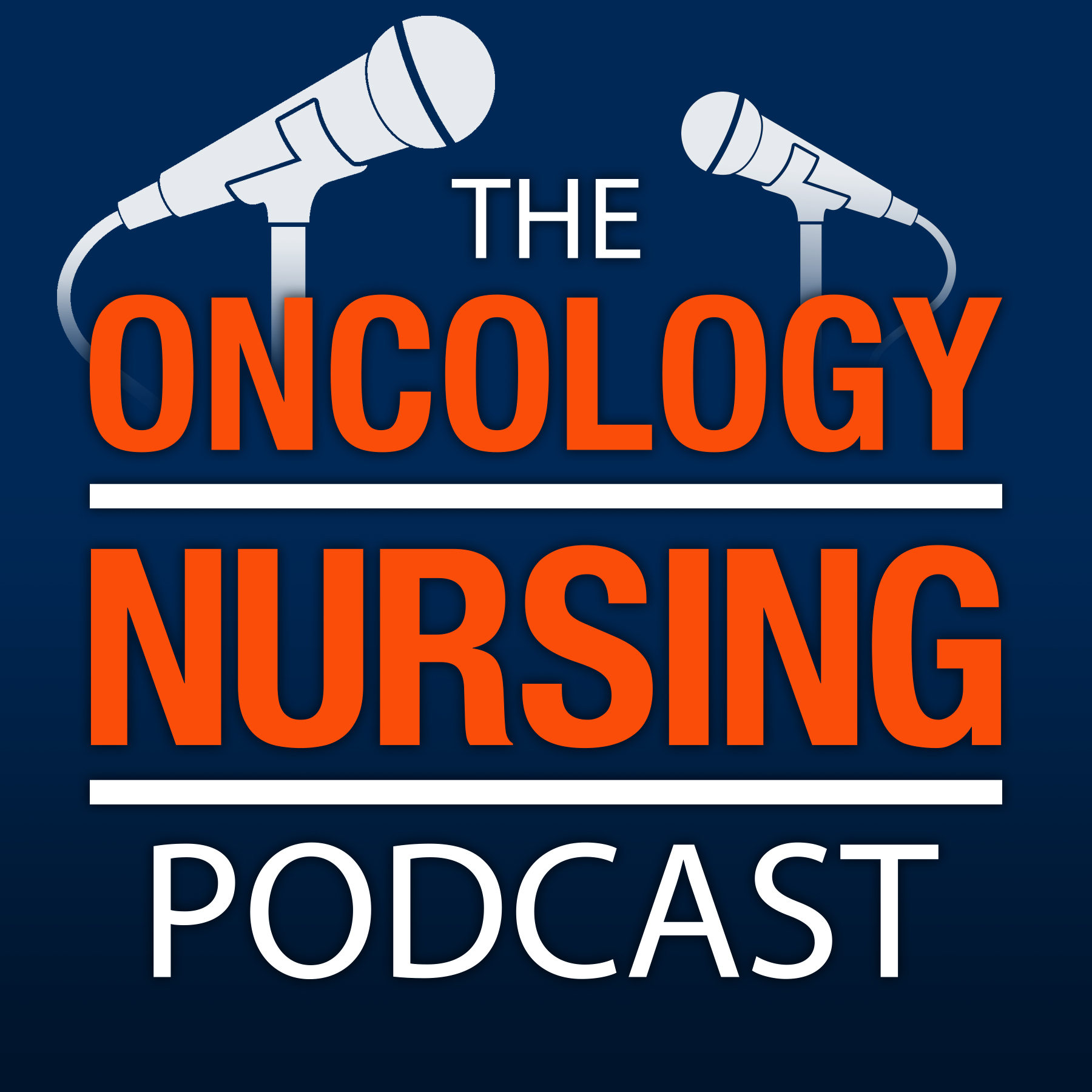Episode 308: Hazardous Drugs and Hazardous Waste: Personal, Patient, and Environmental Safety
Description
“One of the things that I know Dr. [Tom] Connor worked on very heavily in his career is the long-term impact on the health of nurses and other exposed healthcare workers. We definitely need more longitudinal studies, which are difficult to do. And it’s not something that you see every day where I talk to chemo nurses and said, ‘Hey, I’ve been in this 20 years. It hasn't bothered me at all.’ Well, until it does. Therefore, it’s so important when we’re training incoming nurses—how very important it is to start with these practices early in the career and throughout the career,” Charlotte A. Smith, RPh, MS, senior regulatory advisor at Waste Management PharmEcology Services in Milwaukee, WI, told Lenise Taylor, MN, RN, AOCNS®, BMTCN®, oncology clinical specialist at ONS, during a conversation about hazardous drug and waste disposal.
Music Credit: “Fireflies and Stardust” by Kevin MacLeod
Licensed under Creative Commons by Attribution 3.0
Earn 0.5 contact hours of nursing continuing professional development (NCPD) by listening to the full recording and completing an evaluation at myoutcomes.ons.org by April 19, 2026. The planners and faculty for this episode have no relevant financial relationships with ineligible companies to disclose. ONS is accredited as a provider of NCPD by the American Nurses Credentialing Center’s Commission on Accreditation.
Learning outcome: Learners will report an increase in knowledge related to hazardous drugs and hazardous waste.
Episode Notes
Complete this evaluation for free NCPD. Oncology Nursing Podcast episodes: Episode 209: Updates in Chemo PPE and Safe Handling Episode 142: The How-To of Home Infusions ONS Voice articles: Two Oncology Nurses Implement Process to Allow Patients to Disconnect Pumps From the Comfort of Their Own Homes The Oncology Nurse’s Role in Oral Anticancer Therapies Strategies to Promote Safe Medication Administration Practices ONS Safe Handling of Hazardous Drugs Learning Library ONS position statement: Infusion of Antineoplastic Therapies in the Home ONS book: Safe Handling of Hazardous Drugs (fourth edition) ONS course: Safe Handling Basics Clinical Journal of Oncology Nursing articles: Environmental Risk Factors: The Role of Oncology Nurses in Assessing and Reducing the Risk for Exposure Oral Chemotherapy: A Home Safety Educational Framework for Healthcare Providers, Patients, and Caregivers Oral Chemotherapy: An Evidence-Based Practice Change for Safe Handling of Patient Waste Reconciliation and Disposal of Oral Medication: Creating a Safe Process for Clinical Research Personnel Pharmacy Practice News article: Applying NIOSH Hazardous Drug Assessment of Risk Principles To Home Healthcare (by Charlotte Smith and Tom Connor) Books mentioned in this episode: Silent Spring by Rachel Carson Our Stolen Future by Theo Colborn, Diane Dumanoski, and John Peterson Myers Generations at Risk by Ted Schettler, Gina Solomon, Maria Valenti, and Annette Huddle Drug Enforcement Agency: National Prescription Drug Takeback Day Environmental Protection Agency: Final Rule: Management Standards for Hazardous Waste Pharmaceuticals and Amendment to the P075 Listing for Nicotine MD Anderson Cancer Center: Chemotherapy at Home: 9 Things to Know (patient resource) Memorial Sloan Kettering Cancer Center: Safe Handling of Chemotherapy and Biotherapy at Home (patient resource) National Institute for Occupational Safety and Health: Hazardous Drugs in Healthcare Settings Managing Hazardous Drug Exposures: Information for Healthcare Settings NIOSH List of Antineoplastic and Other Hazardous Drugs in Healthcare Settings, 2016 To discuss the information in this episode with other oncology nurses, visit the ONS Communities.
To find resources for creating an ONS Podcast Club in your chapter or nursing community, visit the ONS Podcast Library.
To provide feedback or otherwise reach ONS about the podcast, email pubONSVoice@on
More Episodes
“Under normal conditions, EGFR [epidermal growth factor receptor] is in an auto-inhibited state. And it’s only when it’s needed that it’s upregulated. But when you have cancers that there is either a mutation in the EGFR or an overexpression, what you see is a dysregulation of normal cellular...
Published 11/08/24
Published 11/08/24
Episode 335: Ultrasound-Guided IV Placement in the Oncology Setting
“Much like many experienced oncology nurses, I learned how to do IVs with palpation. I got really good at it. And so I thought, there’s no way I need this ultrasound. But we know now that our patients are sicker. There are...
Published 11/01/24


